Submitted by WA Contents
Canadian Pavilion features wooden lattice façade inspired by Middle East elements at Expo Dubai
United Arab Emirates Architecture News - Oct 06, 2021 - 09:29 6694 views
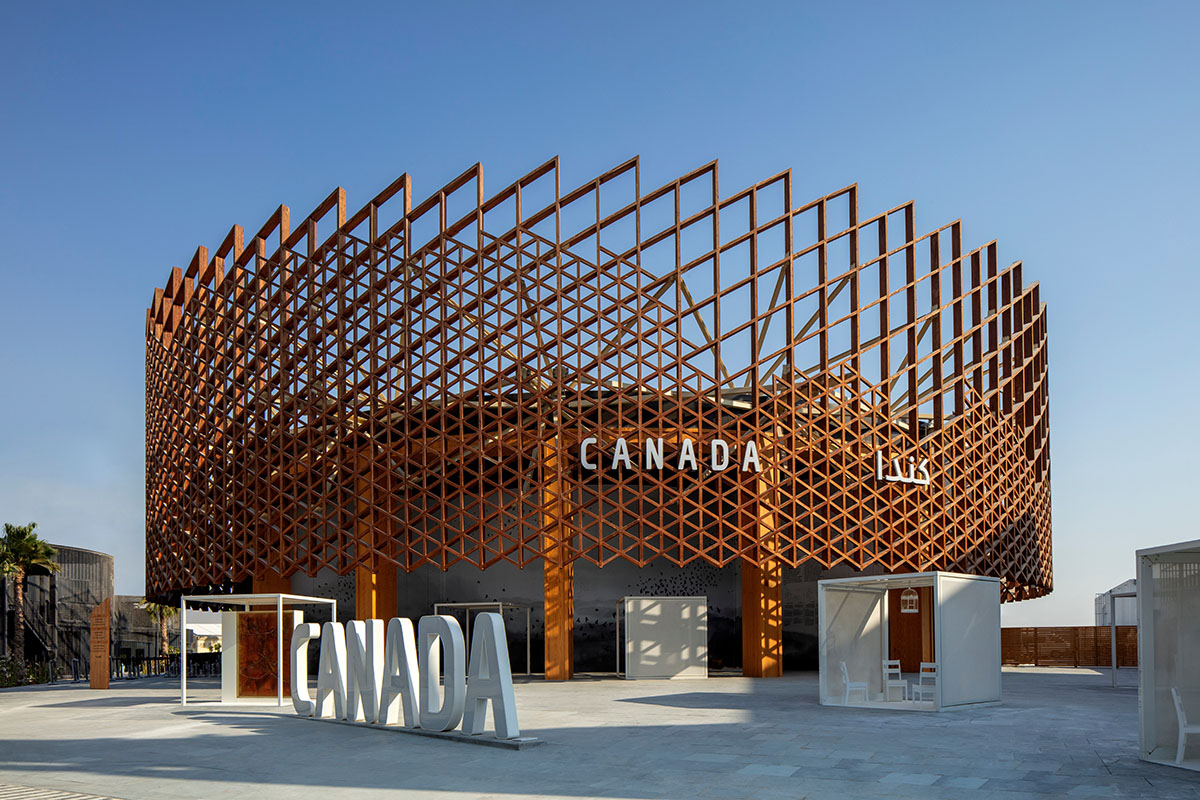
The Canadian Pavilion has opened at Expo 2020 Dubai with a wooden lattice façade wrapping the structure in a circular layout.
Inspired by the Canadian landscape and Middle Eastern architectural elements, the Canadian Pavilion, designed by Toronto-based architecture firm Moriyama & Teshima Architects, intends to connect the two cultures in one embodiment.
Situated at Sustainability District, the pavilion has opened with an art exhibition, called TRACES, designed by Montreal-based firm KANVA.
The aim of the exhibition is to emphasize "the current threats that climate change and global warming pose to those same landscapes, and more specifically, to the species that inhabit them," as KANVA partner and lead architect Rami Bebawi explained.
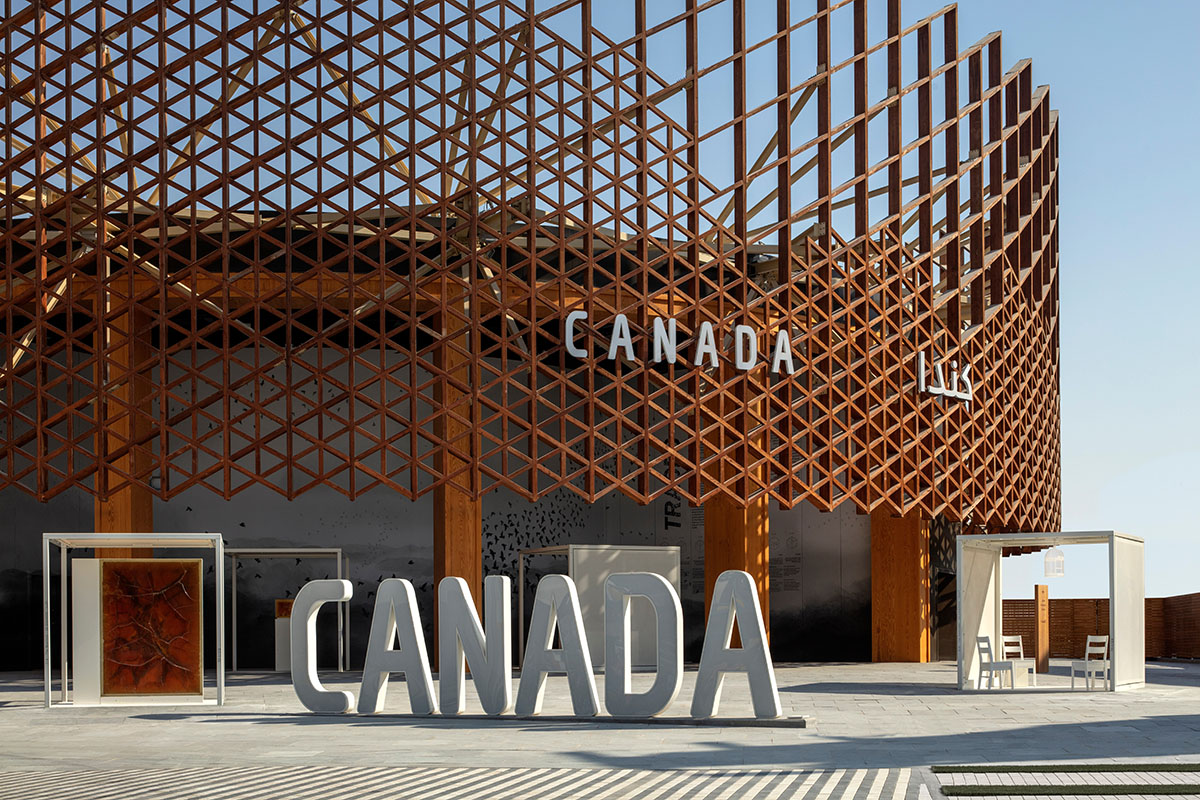
Themed as "The Future In Mind", the Canadian Pavilion introduces an immersive journey through Canada's past, present and future, and creates a platform to be a symbol of collaboration driving a spirit of innovation.
KANVA was commissioned by Global Affairs Canada to design a thought-provoking public installation that represents with both Canada’s participation at the Expo and Expo 2020 Dubai’s themes of Opportunity, Mobility, and Sustainability.
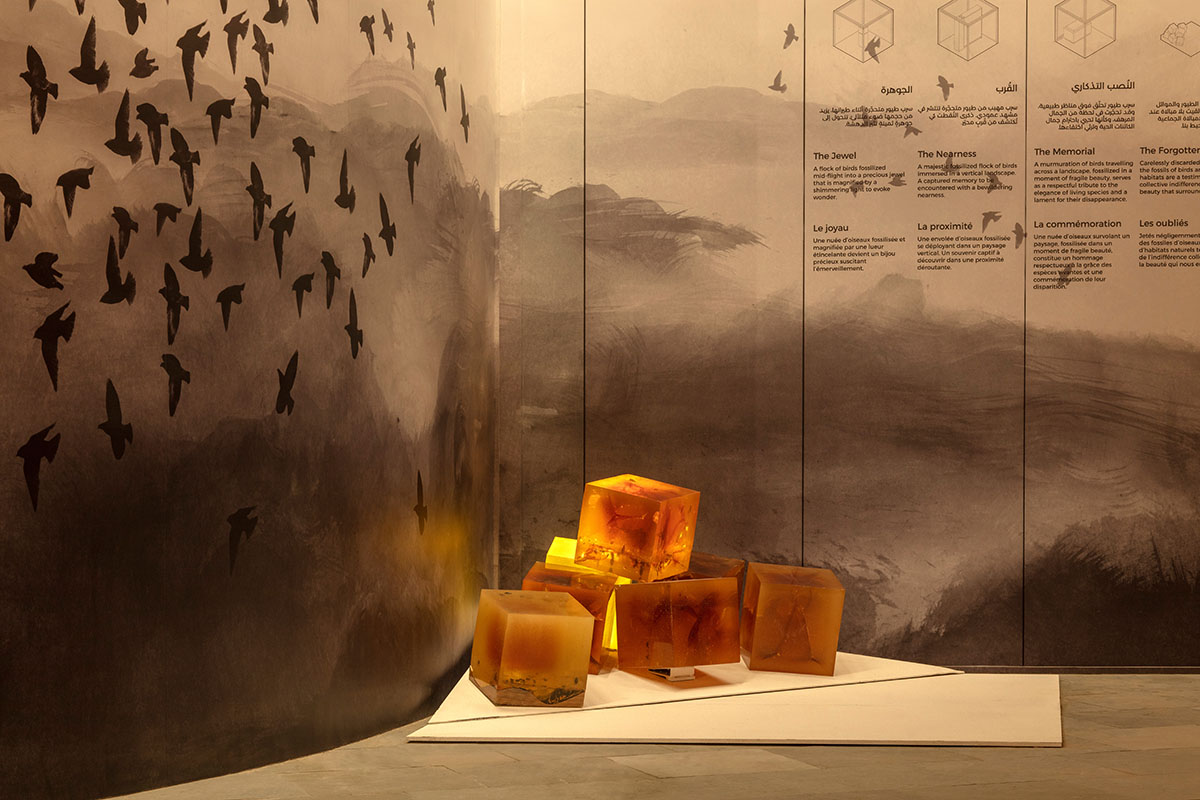
The Forgotten
The TRACES installation, produced by the National Film Board of Canada (NFB), populates the Plaza grounds leading up to the pavilion Entry Hall and explores multiple aspects of global warming and habitat degradation in our planet.
"The concept for TRACES began with the location of the Canada Pavilion in the sustainability section of the Expo grounds, and with the main exhibition being inspired by Canadian landscapes and natural diversity," explained Rami Bebawi.
"We wanted to create something that would emphasize the threats that climate change and global warming pose to those same landscapes, and more specifically, to the species that inhabit them."

The Nearness
As the team highlighted, the project struck a chord with core values long embraced by KANVA, and the firm embarked on a mission to connect hearts, heads, and hands in pursuit of a brighter future that reinterprets relationships between inhabitants of the planet.
In this regard, KANVA devised a concept that would be artistic and poetic, yet also touching and meaningful. The team studied multiple aspects of global warming and habitat degradation before embracing a visual that captured the very essence of their message – a rising murmur of birds, swirling across the sky in a massive, collective movement.
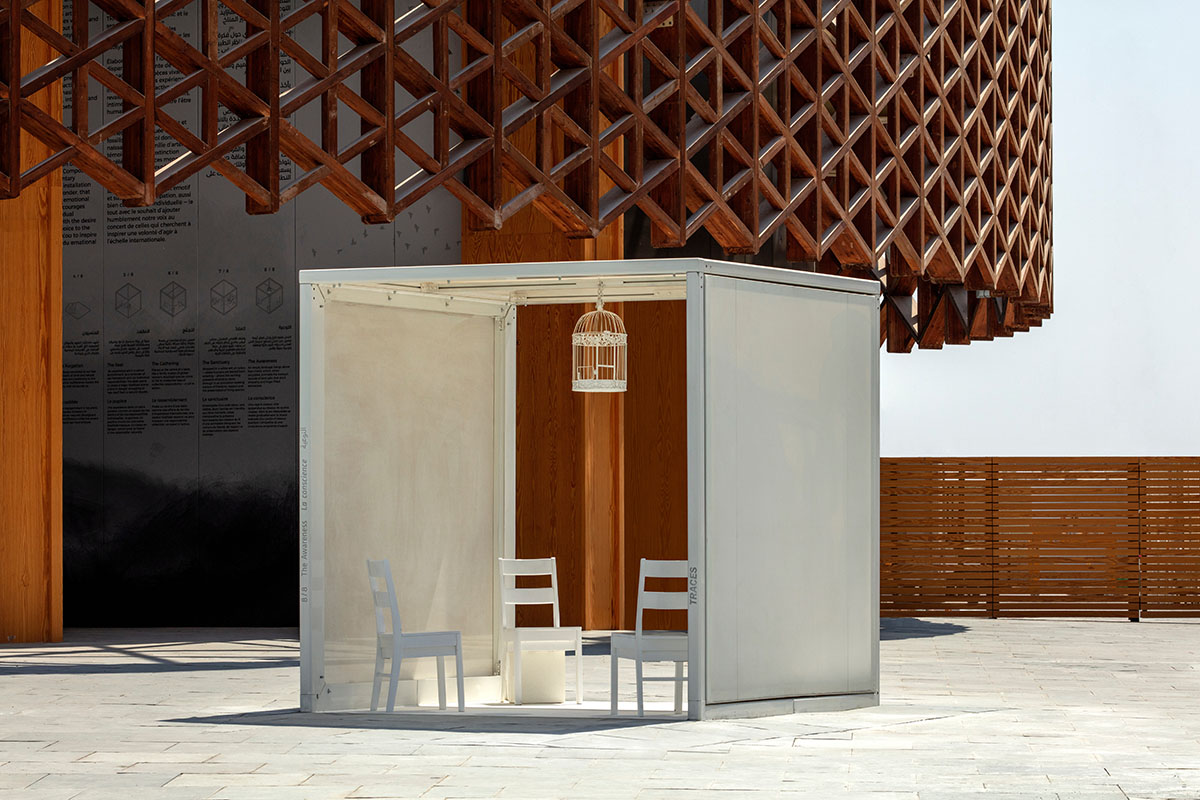
The Awareness
In order to capture and convey a message of urgency surrounding the issue of rapid habitat decline, KANVA came up with the idea of "fossilization of an inhabited landscape", where birds are suspended in motion in a fossilized form that preserves TRACES of their existence.
"Whether due to climate change, or oppressive human development, as landscapes fade away, so do the species that inhabit them," continued Bebawi.
"They are simply erased from memory, and our collective amnesia allows us to persist in their destruction. TRACES reinterprets that cycle by fossilizing the species to ensure that it is not forgotten," added Olga Karpova, architect and senior project lead at KANVA.
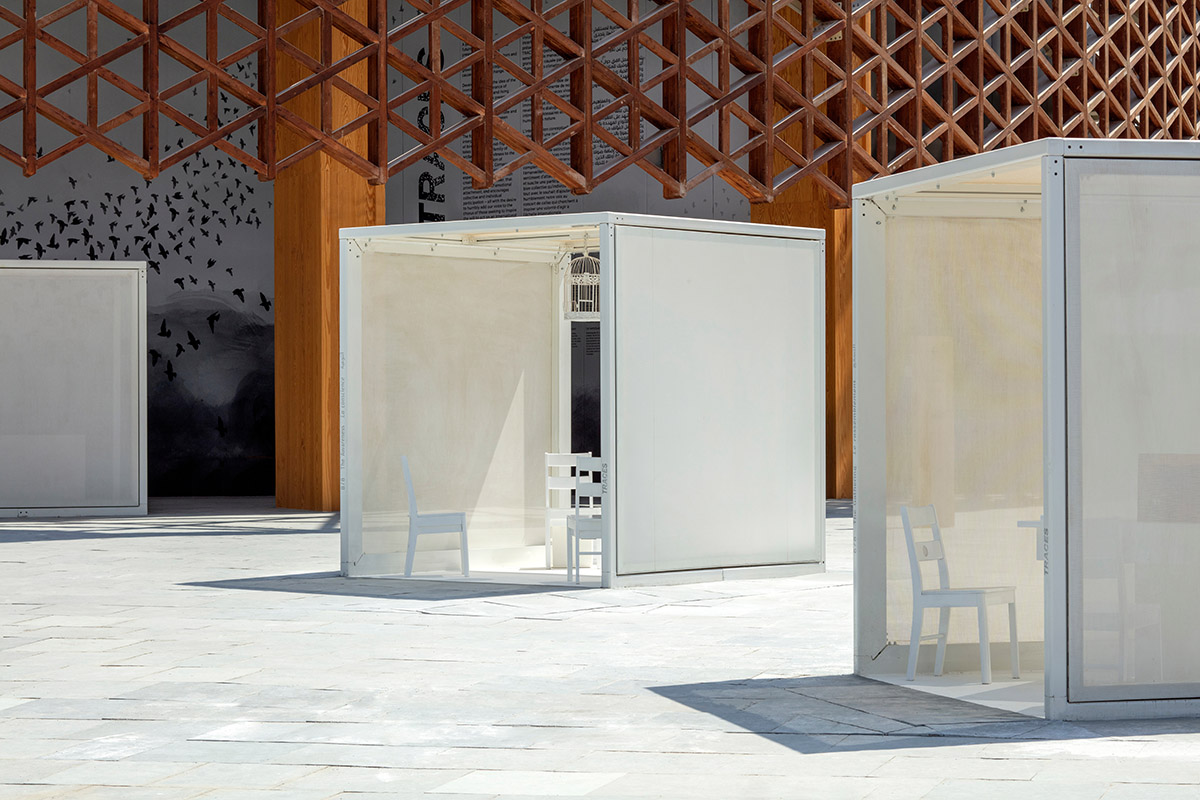
The installation consists of eight boxes, spread across the plaza grounds of the Canada Pavilion in seemingly random fashion as a counter to the traditional linear grid of human development.
Each museum box, measuring 8’ x 8’x 8’, contains a precious object that embodies the beauty of dynamic life in suspension, complemented by multimedia interactions developed with artist Étienne Paquette. As visitors weave their way towards the entry hall of the pavilion, they are invited to move through a variety of multisensorial experiences of discovery and self-appropriation.

The Jewel
The Jewel initiates the conversation by placing fossilized birds on a pedestal, with integrated lighting that presents them as beautiful, but troubled jewels. The journey transitions to The Nearness, the most impressive in terms of scale, featuring a wall of extraordinarily filtered light highlighting the movement of birds within a vertical landscape. The Memorial strikes a more emotional chord, symbolizing a horizontal tomb where visitors find themselves paying tribute to a fallen species. The rectangular base with integrated lighting showcases fossilized birds as they hover over a stunning landscape of wood strata.
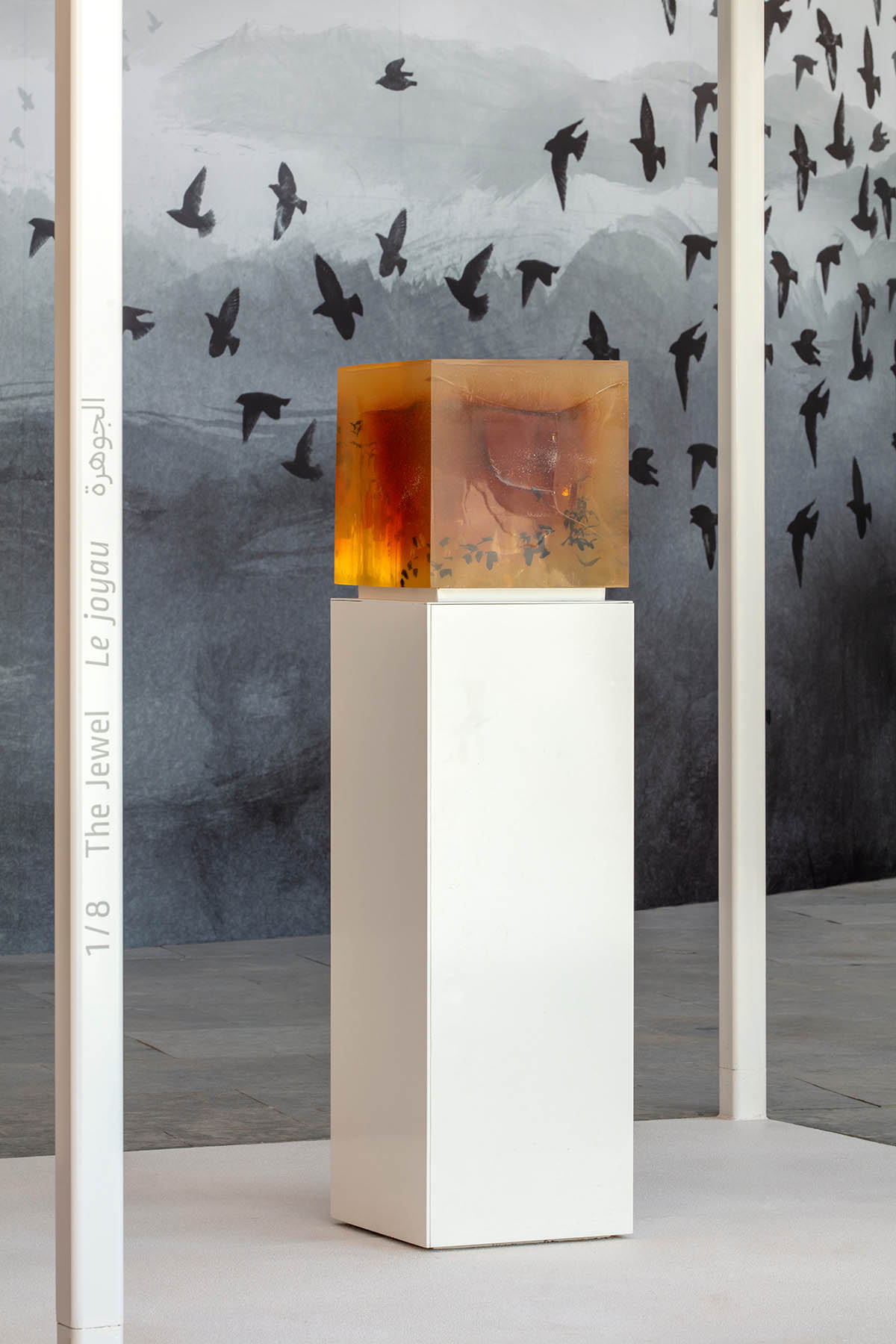
The Jewel
The Forgotten symbolizes the careless discarding of objects we once cherished, with stacked cubes of illuminated prototypes that have been cast aside and underappreciated. The Seat invokes a sense of individual responsibility, seating visitors alone at an old school desk. Upon opening the desk, waterscape sounds and a 3D printed bird is unveiled in a seascape of black ink, depicting the effects of ocean spills through the distressed gaze of a bird struggling mightily to survive.
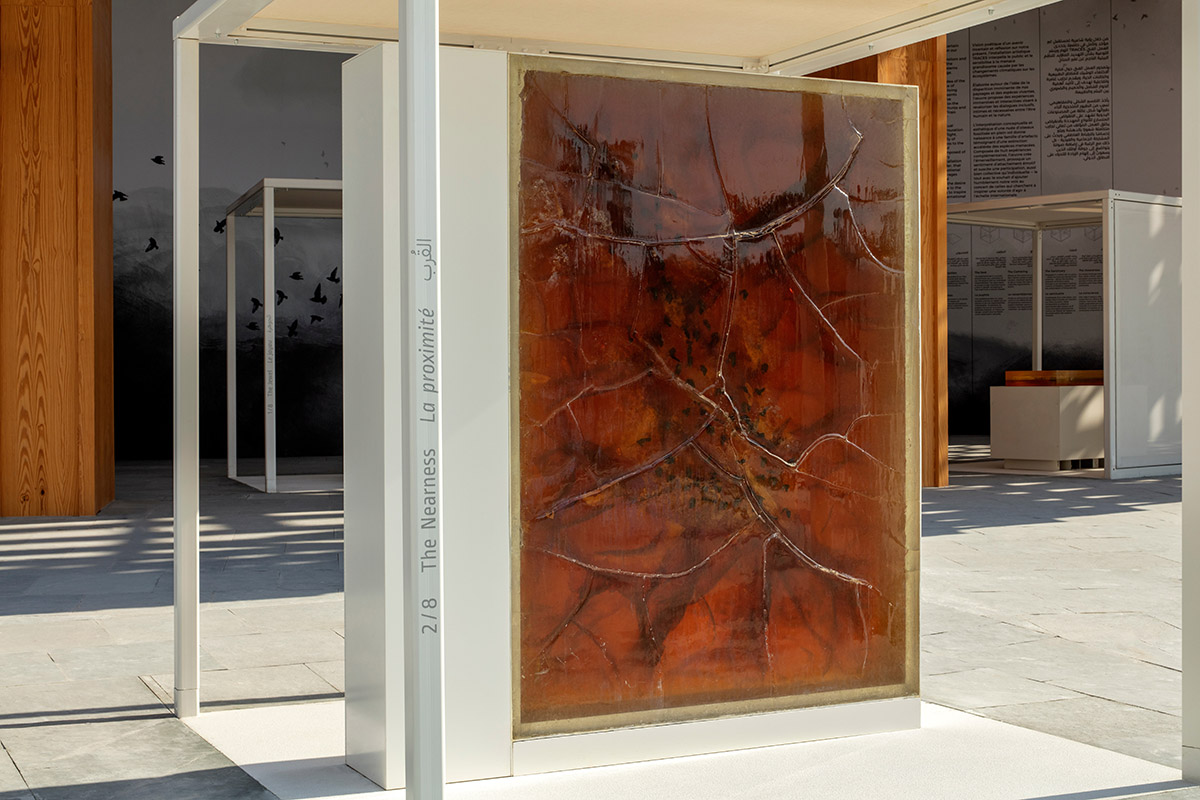
The Nearness
The Gathering focuses on collective responsibility, embodying the process of problem solving around a dinner table, and inspired by a glowing cube of fossilized birds emerging from the center of the table. Unsettled sounds of distressed birds gradually evolve into soft and soothing harmonies that symbolize hope as visitors sit together at the table.

The Awareness
By contrast, The Sanctuary is an extraordinary enclosure devoid of human interference, with its white canvas animated by a flowing stream of birds immersed in a human-free world. KANVA’s eighth box delivers the starkest message of all.
The Awareness consists of four chairs, one in each corner of the box, with an empty bird cage, door open, suspended from the ceiling. Intensifying white noise indicates that something is wrong and, as visitors take a seat and face each other, the ambiance softens to a soothing garden serenade of singing birds. But the cage is empty, and the bird has left.
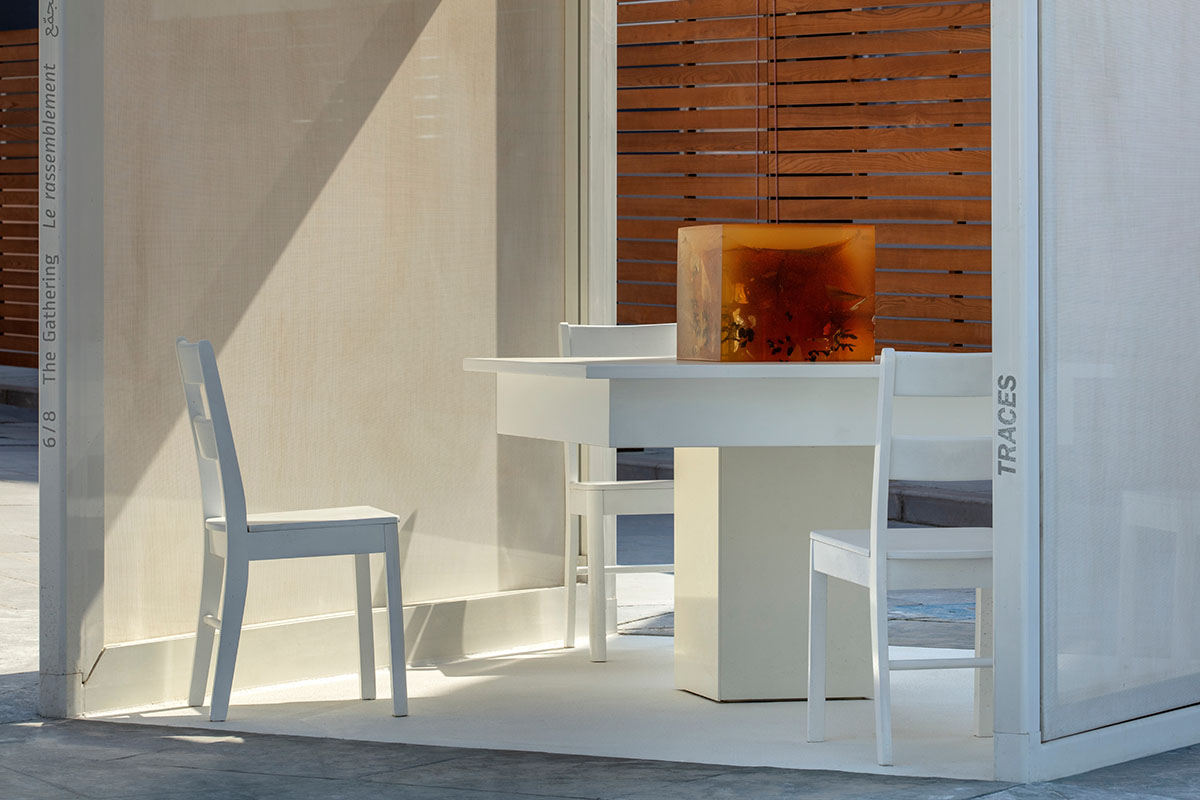
The Gathering
KANVA also designed a mural that stretches along a large, curved wall of the entry hall to the Canada Pavilion. The mural features a multiplicity of flocking birds, at different depths and distances, on a background that can be interpreted as sky, mountains, forests or water.
While the mural is a fixed presentation for Expo 2020 Dubai, the eight cubes are destined to travel the world, where they will persevere as flocking ambassadors of hope.
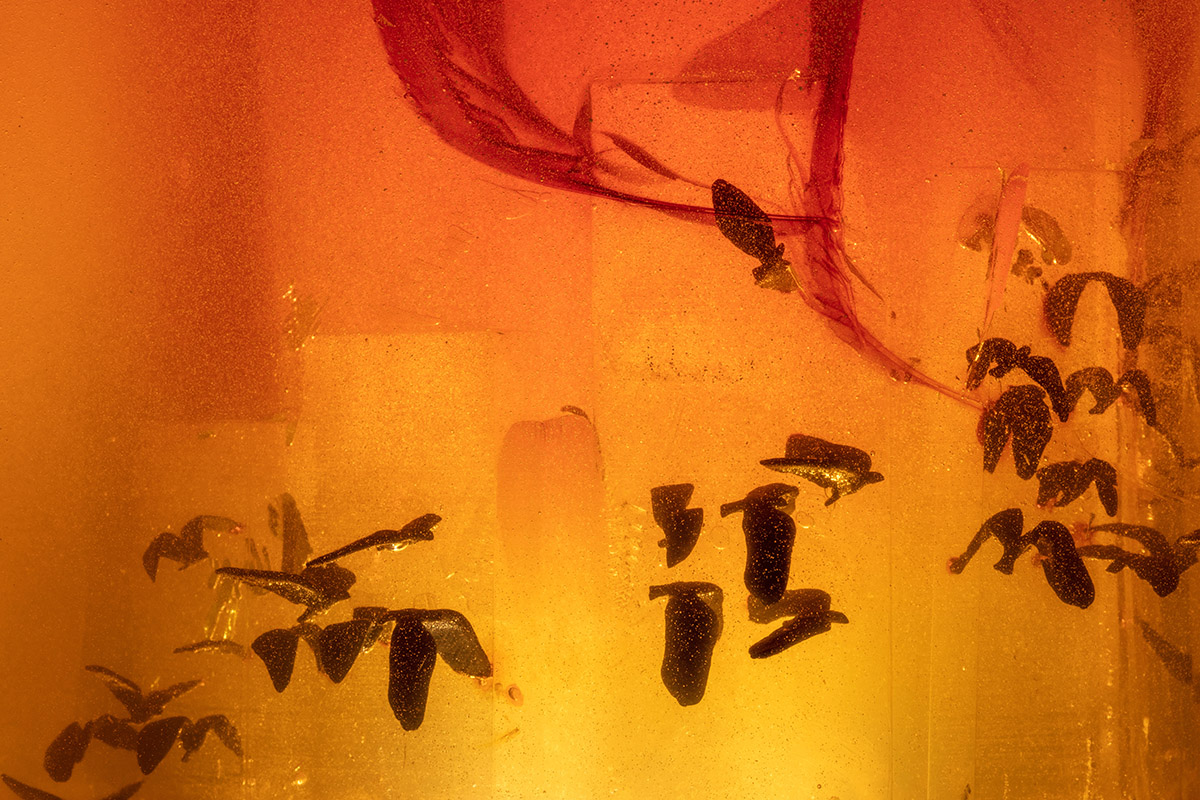

The Forgotten
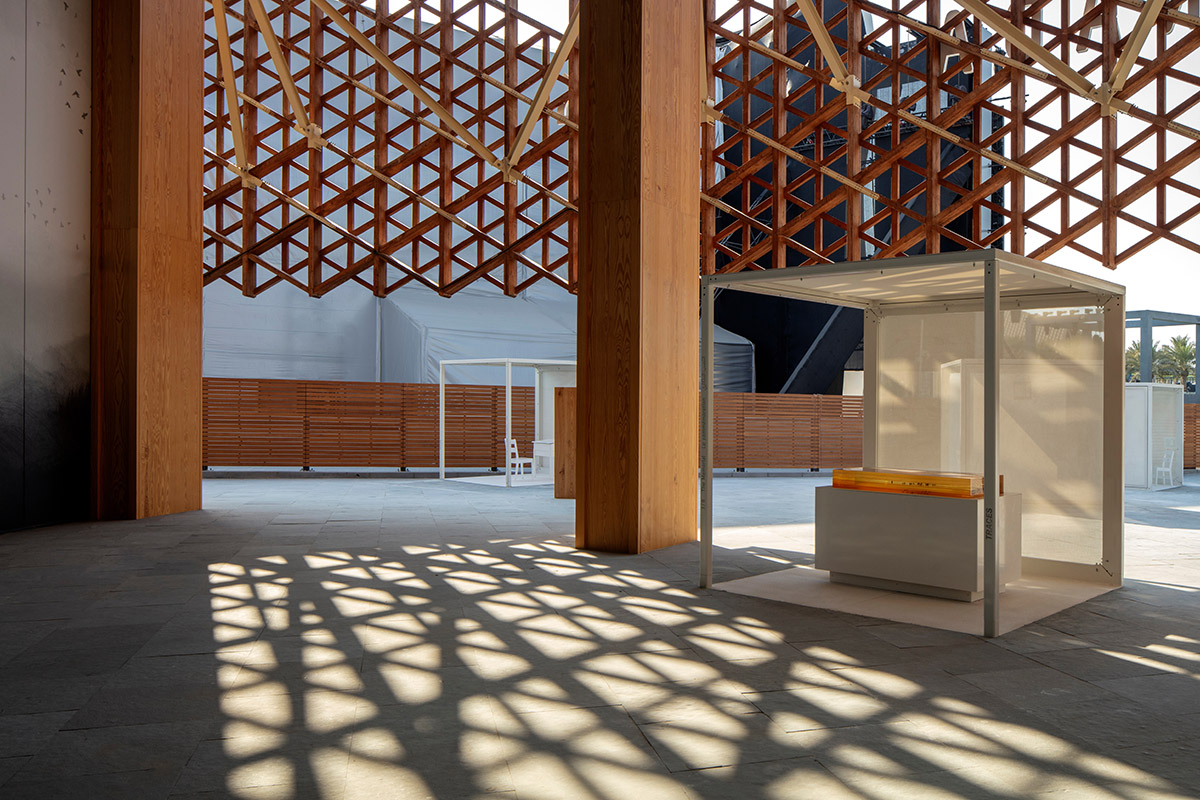
The Memorial
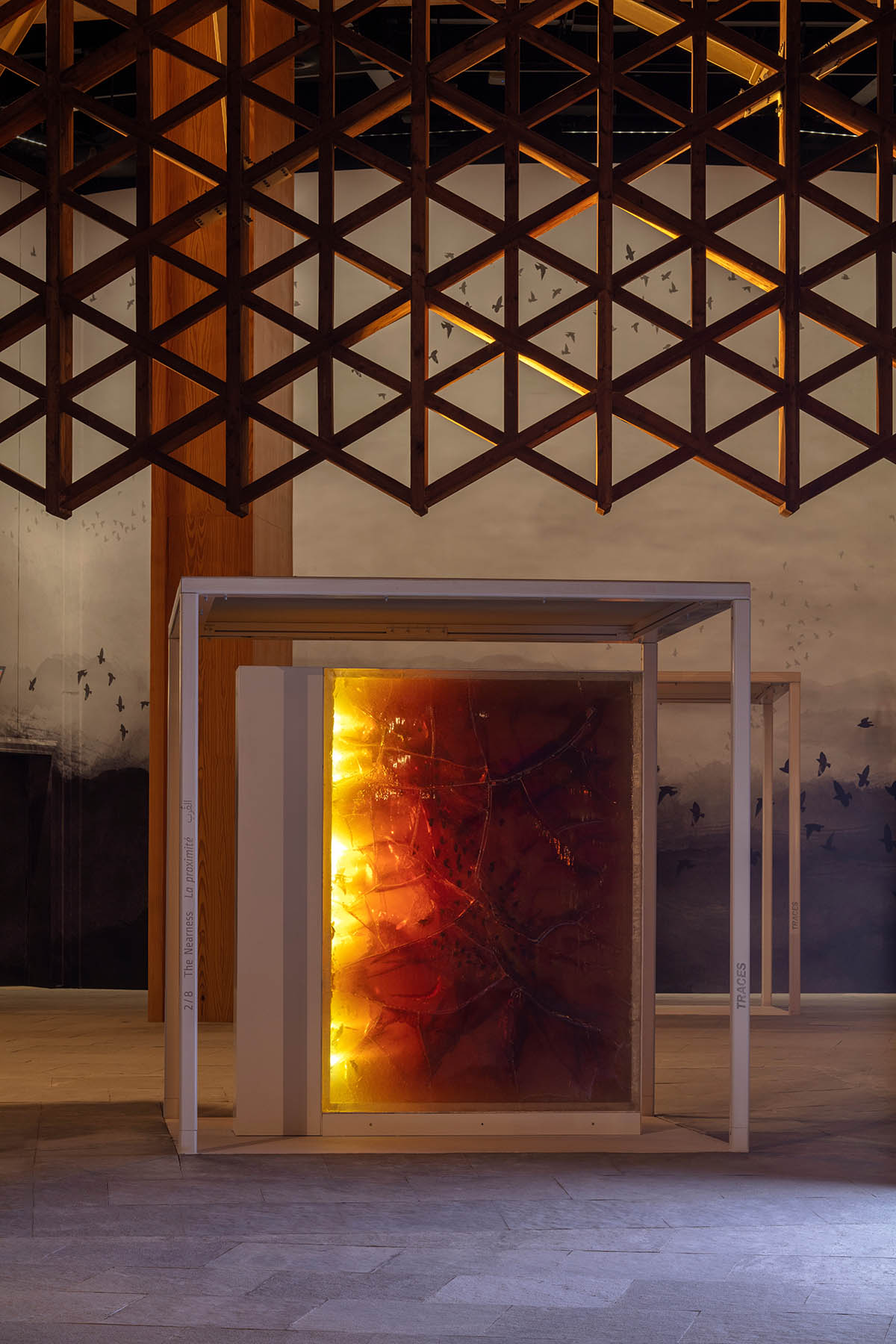
The Nearness
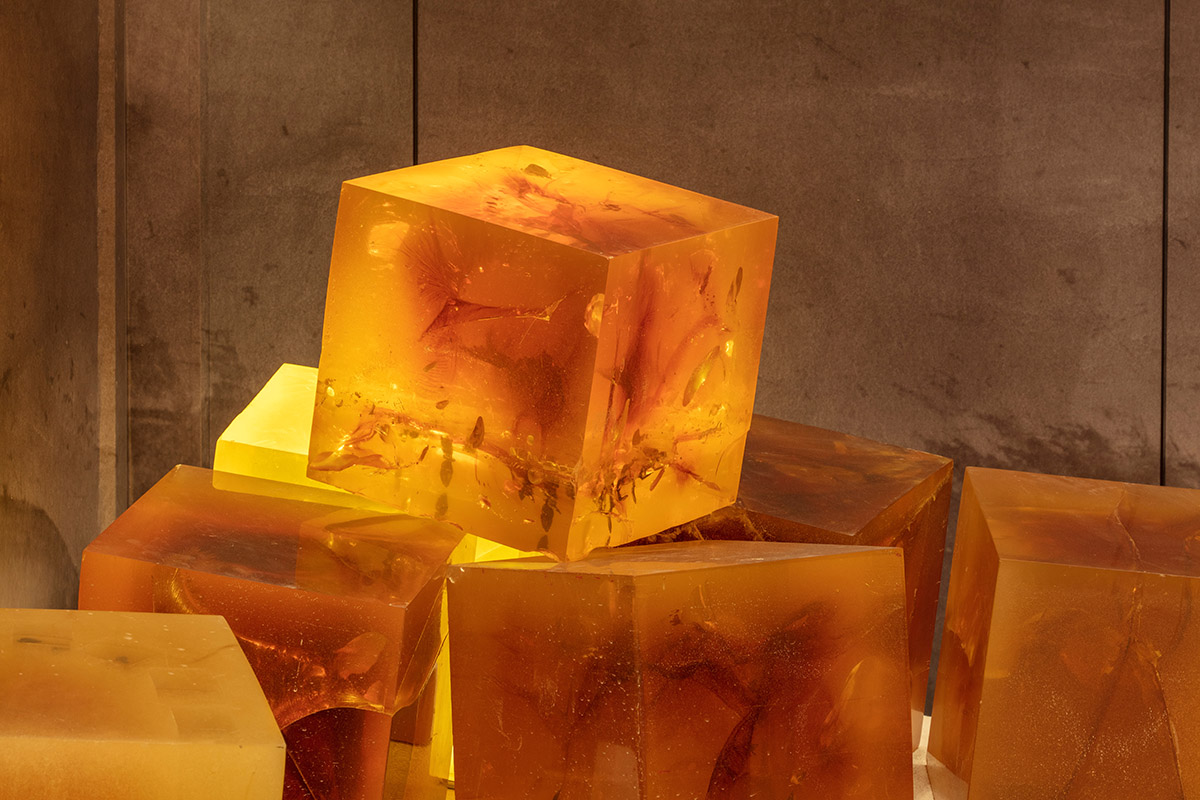
The Forgotten
Expo 2020 Dubai has opened on 1 October and will be on view until 31 March 2022 in Dubai. You can see other pavilions on WAC's United Arab Emirates Country Page.
Project facts
KANVA: Original Concept, Creative Art Direction & Production Design
Creos: Production & Touring Manager
Étienne Paquette: Multimedia Design & Art direction
National Film Board of Canada (NFB): Production
Global Affairs Canada: Department of the Government of Canada responsible for the participation of Canada at Expo 2020 Dubai
Name of the project: TRACES
Location: Canada Pavilion, Expo 2020 Dubai, United Arab Emirates
Dates: October 1st 2021 – March 31 2022
World tour: Dates and information TBD
Collaborators:
Serge Maheu: Multimedia Technical Director and Integrator
Carine Khalife: Visual Artist
Javier Asencio: Immersive sound environment composer and designer
Architects of the Canada Pavilion: Moriyama & Teshima
All images © Gerry O’Leary unless otherwise stated.
> via KANVA
